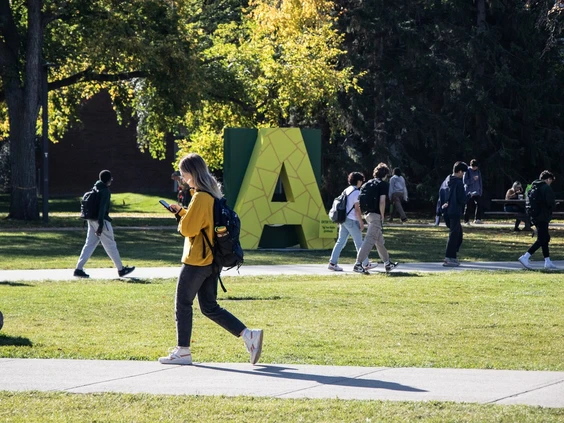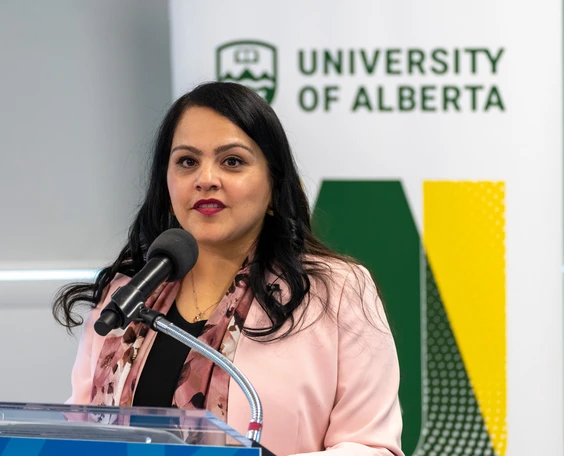Written by Jonny Wakefield, Edmonton Journal, January 6, 2025
Diversity policies have existed in various forms for decades, becoming contentious most recently in the early 2020s under the DEI moniker

The University of Alberta has announced plans to move away from its diversity, equity and inclusion (DEI) policies, saying it will instead organize similar initiatives under a less “polarizing” acronym.
In an Edmonton Journal op-ed published Jan. 2, president Bill Flanagan said the university will move to a policy of “access, community and belonging” in place of DEI.
“This shift is more than a change in terminology,” Flanagan stated. “It reflects a deepened commitment to creating a university community where everyone can thrive. For some, the language of DEI has become polarizing, focusing more on what divides us rather than our shared humanity. Some perceive an ideological bias at odds with merit.”
He added, “It is not the university’s role to take ideological positions but rather to create an environment that encourages dialogue, mutual respect, and the pursuit of knowledge.” The U of A will be the “first major Canadian university to embrace access, community, and belonging,” Flanagan said.
Diversity policies have existed in various forms for decades, becoming contentious most recently in the early 2020s under the DEI moniker. DEI, also known as EDI, has become anathema in certain conservative political circles and has been the subject of bans in the United States. At the governing United Conservative Party’s annual general meetings in 2023 and 2024, members passed resolutions calling for the elimination of diversity, equity and inclusion offices in post-secondary institutions, as well as getting rid of DEI training in the Alberta public service.
Quinn Benders, president of the U of A’s Non-Academic Staff Association (NASA), said the university notified the organization of the change shortly before Christmas. He said it was framed as a “rebrand” and that they were told “the work would remain, even with the rebranding and name change.”
“The consultation was more about, ‘We’re going forward with the rebranding, would you like to share your two cents?’” said Benders, whose union represents around 6,500 employees including trades, lab technicians, IT professionals and library workers.
Benders described the change as “preemptive political appeasement,” noting the U of A has seen significant funding cuts under the UCP.
“I think that this administration, some of them are friendly with the UCP, but some of them, I think, are just constantly terrified of having their funding cut even more,” he said.
NASA has found the work done under the U of A’s DEI initiatives useful, Benders added. He does not consider it the kind of administrative “bloat” complained of on many campuses.
“(The policies) tend to try to address systematic inequities in hiring, in promotion, workplace culture, all of those things,” he said. “And I think that’s really important for non-academic staff, who don’t have a lot of protections.” DEI programs support access to training, leadership and professional development opportunities, and collect data on university policies, Benders said.
“For example, if there are layoffs, are there particular groups that are being more highly impacted than others?”

Abdul Abbasi, the U of A Students’ Union vice-president external, said he hopes the projects and institutions created under the university’s DEI policies continue, including the student ombudsperson, the Office of Safe Disclosure and Human Rights and sexual and gender-based violence prevention.
“The university must retain a commitment to addressing inequalities faced by marginalized groups, and to listen to them and make sure that they feel heard,” he said. “Right now in the university, a lot of students don’t feel safe or don’t feel heard. We’re going to keep having conversations about that — that the university is removing barriers to access and attacking the real challenge that students face, from rising costs to systematic discrimination.”
Gordon Swaters, a professor and president of the Association of Academic Staff of the University of Alberta (AASUA), said it remains to be seen how the change will affect things.
“AASUA was not given a heads up about the announcement, and we are still examining the implications of this change,” he said. “We do have employment equity language in our collective agreement that requires the employer to follow the principles underlying ‘equity, diversity, and inclusivity.’”
He urged the university to “go beyond branding.”
“Hundreds of U of A educators and researchers are still trapped in short-term contracts with low pay, many with no health and dental benefits of any kind, despite often having the same qualifications as their tenure-track and full-time colleagues,” he said. “These working conditions aren’t conducive to the ‘mutual respect’ the employer claims to be working towards in this announcement.”

In a statement, Advanced Education Minister Rajan Sawhney said the policy change was “made internally by the university.”
She nonetheless applauded the decision.
“As president Flanagan noted, there have been concerns raised regarding EDI policies prioritizing ideology and immutable characteristics over merit. Our government believes that students and applicants to post-secondary programs should be evaluated based on their merit and abilities, and we are pleased to see this reflected in the U of A’s decision.”